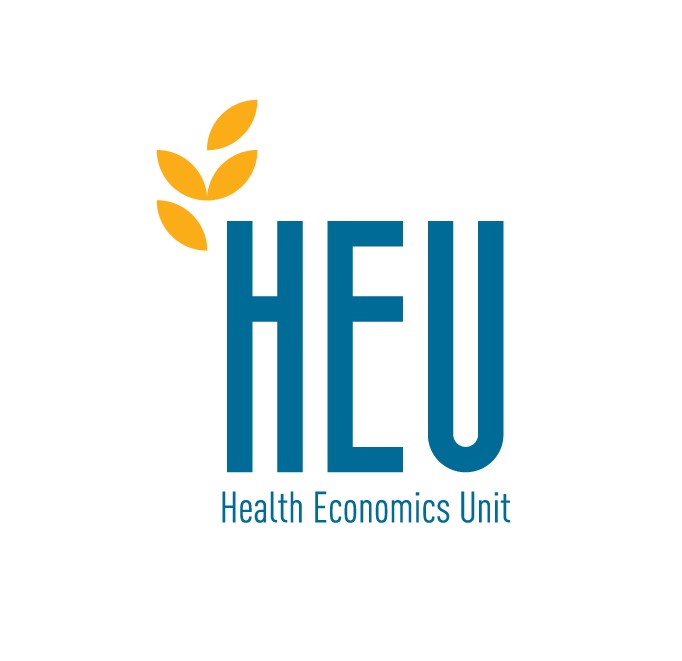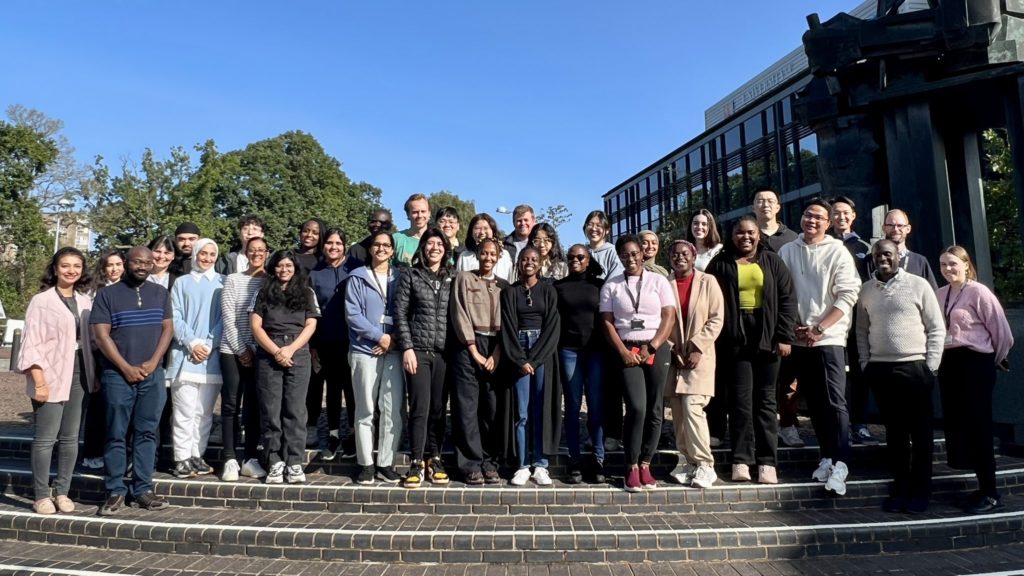Welcome

Hello, and welcome to the latest HEUnews! Autumn and Winter might not be seasons that you associate with growth and new beginnings, but that is very much the theme of this issue of HEUnews. As you will have seen from the previous issue of HEUnews (and from social media), Hareth Al-Janabi is settling in as our new Head of Unit, and we have welcomed a new cohort of students to our two MSc programmes in Health Economics and Health Policy and Health Economics and Econometrics (see photo below). We have also been welcoming new members of staff to the HEU team; featured in this edition of HEUnews are Charlotte, Dee, John and Lefan. We also have new research projects launching, and featured in this edition is the Wellcome funded WM-Net Zero project, on which HEU’s Sue Jowett (our new Deputy Head of Unit) and James Hall will be leading the Health Economics.
Not everything is new, and we also feature an ongoing research project that is funded by the NIHR’s School for Social Care Research: HEU’s Philip Kinghorn and Rebecca Ince are asking “what happens to those who are self-funding social care when the money runs out?”

New Staff
Charlotte Owen

Charlotte joined HEU in July as a Research Fellow. She recently completed her PhD in Social Statistics and Demography at the University of Southampton. Her PhD utilised mixed methods to investigate barriers to health and physical rehabilitation for people with disabilities in Cambodia. Charlotte works as part of the CONNECT project, which is led by HEU’s Louise Jackson and aims to understand the impact of remote consultation in sexual and reproductive health services (SRHS) on health inequalities. CONNECT has three interconnecting work packages involving synthesis of published evidence on remote consultations in SRHS, analysis of clinic data and in-depth interviews, and the development of recommendations. Her roles include working on the synthesis of published evidence and as a qualitative researcher for the in-depth interviews.
John Okon
John joined HEU as a Research Fellow, following a brief period working as a junior doctor in the NHS. He completed the MSc in Health Economics and Health Policy at the University of Birmingham in 2020.
John is working with HEU’s Raymond Oppong on evaluating the programme cost, and cost-effectiveness of cancer Rapid Diagnostic Centers (RDCs) across the West Midlands area. This project aims to evaluate the cost-effectiveness of RDC programmes dedicated to cancer diagnosis in patients presenting with vague/non-specific symptoms. The project will also compare process efficiency and patient experience across the different centres.

Lefan Liu

Lefan joined HEU as a research fellow in July 2023 and is working with Philip Kinghorn on an NIHR funded project “Family Group Conferencing in adult social care and mental health: exploring how it works and what difference it can make in people’s lives”. Lefan will support the project by collecting the primary data and conducting the economic analysis. Before joining the University of Birmingham, she was working in China at the University of Nottingham Ningbo China (2015-2023). Lefan completed her PhD in Economics at the University of Nottingham in 2016. She has previously conducted research on mental health and household decision making.
Dee joined HEU in August 2023 as a Project Manager, working with HEU’s Louise Jackson on the NIHR funded CONNECT Study. CONNECT is looking at the impact of remote consultations in sexual and reproductive health services on health inequalities. Dee’s background is in the management of Clinical Trials of Investigational Medicinal Products (CTIMPs), including early phase oncology (both adult and paediatric) at the University’s Cancer Research UK Clinical Trials Unit (CRCTU), and more recently, working on late phase women’s health studies at the Birmingham Clinical Trials Unit (BCTU). Dee also has teaching responsibilities on the University of Birmingham’s MSc Clinical Trials.
___________________________________________________________________________________________
Research News
Using Health Economics to evaluate impact of Net Zero policies
The Health Economics Unit has recently in gained funding to explore the health economics impacts of carbon reduction policies. This work is led by HEU’s Sue Jowett, with analysis to be undertaken by James Hall.
The WM-Net Zero four-yearprogramme of work, supported by the Wellcome Trust, was launched in October 2023 and is a transdisciplinary collaboration between all five University of Birmingham Colleges and 14 regional and national partners. The overall aim is to apply a health-systems approach to Net-Zero policy making in the West Midlands region, to ensure health co-benefits are at the forefront of those policies. As part of a proposed Climate-LAT toolkit, health economic modelling will estimate the health and economic impacts of proposed climate policies in the transport, housing and energy sectors (e.g. transport decarbonisation and Net Zero neighbourhoods) compared with ‘business as usual’, as these policies may in turn have an impact on air pollution, physical activity, noise, heat and green space.
GPNET-0, led by Warwick University and funded by NIHR HS&DR, is a mixed methods study aiming to understand to extent to which general practice is currently applying suggested decarbonisation strategies to help achieve a net zero NHS, and to generate recommendations on how to support and accelerate actions to decarbonise general practice. The health economics workstream will use budget impact modelling to investigate the financial impact of adopting carbon reduction strategies, and will produce a tool for use by practices to explore the financial implications of different policy scenarios.
“When the money runs out”: capital depletion and transition out of self-funded care
Many people self-fund their own residential care (care homes and nursing homes), often only seeking support from a local authority when they have concerns about their savings and assets falling below the threshold set by Government of £23,250. Little is known about when residents (and their family members) request help, what happens after that, and the impact that capital depletion has on those involved. An ongoing, NIHR School for Social Care Research funded, project is seeking to shed light on what happens in cases of capital depletion, specifically within the context of residential care. HEU’s Philip Kinghorn and Rebecca Ince have been conducting qualitative interviews across four stakeholder groups: (i) care home residents and their family members; (ii) care home owners and managers; (iii) social workers and financial assessment officers working within local authorities; and (iv) organisations providing independent advice.
As well as Phil and Becky, the research team includes collaborators from the School of Social Policy at the University of Birmingham (Dr Denise Tanner), collaboration with the charity sector (Anne Hastings, CEO of Age UK Solihull), and collaboration with researchers at the University of York (Dr Kate Baxter and Professor Yvonne Birks).
The next stages of the project are the co-production of resources (and policy recommendations) to promote and facilitate best practice, and the interpretation of qualitative data through an ‘economic lens’ (linking to theories such as the principle-agent relationship). The process of co-production will start at a workshop in Birmingham on 30th November.
